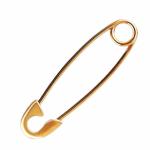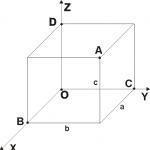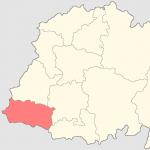Упражнения на тему времен Perfect. Времена группы Present (Simple, Continuous, Perfect, Perfect Continuous)
ДЕПАРТАМЕНТ ОБРАЗОВАНИЯ И НАУКИ ПРИМОРСКОГО КРАЯ
ФИЛИАЛ КРАЕВОГО ГОСУДАРСТВЕННОГО БЮДЖЕТНОГО
ПРОФЕССИОНАЛЬНОГО ОБРАЗОВАТЕЛЬНОГО УЧРЕЖДЕНИЯ
«УССУРИЙСКИЙ АГРОПРОМЫШЛЕННЫЙ КОЛЛЕДЖ»
В ХАНКАЙСКОМ РАЙОНЕ
c борник упражнений для тренировки употребления времен группы « P ERFECT » по учебной дисциплине
английский язык
для студентов специальности
190631.01 «Автомеханик», 260807.01 Повар-кондитер
3 курса очного отделения
Составил: преподаватель английского языка Высоцкая Н.В.
Камень-Рыболов, 2016 г.
Perfect Tense
Группа « совершенных » времен состоит из:
Настоящего совершенного времени (Present Perfect Tense )
Будущего совершенного времени (Future Perfect Tense )
Прошедшего совершенного времени (Past Perfect Tense )
Времена группы Perfect употребляются для выражения действий, предшествующих настоящему моменту или определенному моменту в прошедшем или будущем времени.
Ex: Has the secretary come? - Пришел ли секретарь?
(Говорящего интересует результат действия has come , т.е. он хочет выяснить, здесь ли секретарь.)
3.1. Present Perfect Tense
Настоящее совершенное время - употребляется для выражения действия, совершившегося к настоящему моменту, результат которого имеется налицо в настоящем времени. Оно может выражать действие, совершившееся как непосредственно перед моментом речи, так и в более отдаленное время в прошлом.
Present Perfect переводится на русский язык прошедшим временем глагола совершенного вида, а иногда и несовершенного вида, в зависимости от смысла предложения.
Ex: I have broken my pencil. – Ясломалсвойкарандаш.
СЛУЧАИ УПОТРЕБЛЕНИЯTHE PRESENT PERFECT TENSE
№
п/п
СЛУЧАЙ УПОТРЕБЛЕНИЯ
ПРИМЕР
1
Действие, совершившееся в прошлом, но имеющее непосредственную связь с настоящим моментом. Без уточнения времени
I have written this letter. Я написал это письмо.
2
Действие, совершившееся в истекший период в настоящем (с такими словами, как today сегодня , this week на этой неделе , this month в этом месяце и т. д.)
This week I have called her twice. На этой неделе я дважды звонил ей.
I have visited him today. Сегодня я навестил его.
3
С наречиями неопределенного времени: never никогда , ever когда-либо , yet еще , already уже , lately недавно (за последние дни или месяцы), recently недавно (за последние месяцы или годы); со словом since с, с тех пор
I haven’t seen him since spring. Я не видел его с весны.
4
В придаточных предложениях времени и условия после союзов after после того как , if если , when когда , as soon as как только , before прежде чем вместо Future Perfect
I’ll go to the Crimea after I have taken my exams. Я поеду в Крым после того, как сдам экзамены.
5
Действие или состояние, не законченное к моменту речи (переводится настоящего времени)
I have known him for many years. Я знаю его много лет.
(Таб.1.1.)
Образование форм глагола в Present Perfect
I have eaten
Long form
Short form
Have I eaten?
I have not eaten
I haven’t eaten
You have eaten
You have not eaten
You haven’t eaten
Have you eaten?
He has eaten
He has not eaten
He hasn’t eaten
Has he eaten?
She has eaten
She has not eaten
She hasn’t eaten
Has she eaten?
It has eaten
It has not eaten
It hasn’t eaten
Has it eaten?
We have eaten
We have not eaten
We haven’t eaten
Have we eaten?
You have eaten
You have not eaten
You haven’t eaten
Have you eaten?
They have eaten
They have not eaten
They haven’t eaten
Have they eaten?
(Таб.1. 2 .)
Примечание:
1. Present Perfect to have в форме настоящего времени ( have / has ) ( Past Participle ) смыслового глагола или V 3 (правильных и неправильных глаголов);
2. Отрицательная форма образуется при помощи частицы not , которая ставится после вспомогательного глагола, затем следует ( Past Participle ) смыслового глагола или V 3.
3. В вопросительной форме вспомогательный глагол to have ставится перед подлежащим, затем следует ( Past Participle ) смыслового глагола или V 3.
Exercises
I. Write the past participle of the following verbs.
1. sleep _________ 2. open _________
3. find __________ 4. arrive ___________
5. give __________ 6. buy ____________
7. take __________ 8. make ___________
II. Choose a verb from the list, use the “Present Perfect” and complete the sentences.
Drink, break, make, phone, clean, arrive, wash.
1. She ___________________ a vase.
2. We ___________________ the room.
3. I _____________________ the beds.
4. He ___________________ his friend.
5. The plane ______________ .
6. They __________________ their hair.
7. You __________________ a glass of Coke.
III. Fill in with “yet”, “ago”, “ever”, “last night”, “for”, “since”.
1. My father went to Spain two days _________ .
2. He has known her ___________ 1999.
3. She hasn’t finished her work ____________.
4. Have you ________ seen an elephant?
5. We went to bed at 10 o"clock ____________.
6. He ahs been in Madrid _____________ ten years.
IV. Make up the questions with how long.
1. I know the Browns.
2. Fred is a teacher.
3. Alice and Ben are married.
4. We are great friends.
5. My husband has a beard.
6. I visited Paris last month.
3.2. Future Perfect Tense
Будущее совершенное время – употребляется для выражения будущего действия, которое совершится доопределенного момента в будущем. Future Perfect переводится на русский язык будущим временем глагола совершенного вида .
Ex: We will have translated the article by 5 o"clock.
Мы (уже) переведем статью к пяти часам.
СЛУЧАИ УПОТРЕБЛЕНИЯ THE FUTURE PERFECT TENSE№
п/п
СЛУЧАЙ УПОТРЕБЛЕНИЯ
ПРИМЕР
1
Действие, которое будет завершено до определенного момента в будущем, который определяется обстоятельством времени с by к, до
I"ll have translated this text by 2 o"clock tomorrow. Я переведу этот текст завтра до 2 часов.
2
Действие, которое завершится до другого действия в будущем, выраженного в (c by к, до )
I"ll have written my composition by the time you ring me up. Я напишу сочинение до того, как ты мне позвонишь.
(Таб.1.3.)
Образование форм глагола в Future Perfect
(Таб.1 .4. )Примечание:
Future Perfect образуется при помощи вспомогательного глагола to have в форме будущего времени (will have ) и формы причастия прошедшего (Past Participle ) смыслового глагола или V 3 ;
Отрицательная форма образуется при помощи частицы not , которая ставится после первого вспомогательного глагола will + not + have +( Past Participle ) или V 3, краткая форма вспомогательного глагола won "t ;
В вопросительной форме первый вспомогательный глагол ставится перед подлежащим, затем следует 2-ой вспомогательный глагол + Past Participle или V 3 .
Exercises
I . Write the verb in Future Simple, Future Continuous or Future Perfect.
1. I ________ (do) my homework tomorrow.
I _________ (do) my homework at 6 o"clock tomorrow.
I __________ (do) my homework by 6 o"clock tomorrow.
2. When I come home tomorrow, my family _________ (have) supper.
3. Don’t come to my place tomorrow. I _________ (write) a composition the whole evening.
4. How many pages you __________ (read) by 5 o"clock tomorrow?
5. Whom ________________ (visit) you by that time?
II. Put the verbs in brackets in the correct form.
Mara Campos ____________ (to become) a rising star in the Progressive Party. She __________ (to begin) her political career while she _________ (to study) at Woodsville University. When she first _________ (to stand) as a candidate for Woodsville, she ____________ (not/ to win) many votes – Woodsville is a traditional town, and no woman ____________ (ever/ to be) a candidate there before. “They ___________ (to elect) the same man, year after year, “she told me”, and they just ____________ (to laugh) at me when I _________(to get up) to speak”. But she was the winning candidate in the next election, and since then she __________ (to snow) herself to be a hard-hitting speaker who ___________ (never/ to be) afraid to say what she thinks.
In recent months she _________ (to fight) hard to improve the position of women. She told me the reason. “I began this campaign because women _______________
(continually/ to write) to me, complaining of how their husbands ___________ (to treat)them. Sometimes their husbands __________ (to throw) them out of the family home and left them without any possessions. The law always ___________ (to take) the husband"s side in such cases”.
When I __________ (to interview) Maria Campos last week, she __________
(to plan) a new campaign on this question. She _________ (already/ to persuade) some of the country"s most important legal experts to support her. “The law must be changed”, she _________ (to say) to me.
3.3. Past Perfect Tense
Прошедшее совершенное время – употребляется:
● для выражения действия, завершившегося до какого-либо момент или другого действия в прошлом:
Ex: We had translated the article by 5 o"clock.
– Мы (уже) перевели статью к пяти часам.
● в предложениях, в которых одно действие завершилось до другого действия, длящегося в прошлом:
Ex: He had visited his friend and was listening to music when I came.
Он (уже) посетил своего друга и слушал музыку, когда я пришел.
Past Perfect переводится на русский язык прошедшим временем глагола совершенного, а иногдаи несовершенного вида, в зависимости от смысла предложения.
СЛУЧАИ УПОТРЕБЛЕНИЯ THE PAST PERFECT TENSEСЛУЧАЙ УПОТРЕБЛЕНИЯ
ПРИМЕР
Действие или состояние, завершившееся до определенного момента в прошлом. Этот момент определяется либо обстоятельством времени с by к , либо другим действием или состоянием в прошлом, которое произо-шло позже и выражается в
Yesterday by 7 o"clock I had translated the text. Вчера к 7 часам я перевел текст.
I had had breakfast before he came. Я позавтракал до того, как он пришел.
Образование форм глагола в Past Perfect
I had come
Long form
Short form
Had I come?
I had not come
I hadn’t come
You had come
You had not come
You hadn’t come
Had you come?
He had come
He had not come
He hadn’t come
Had he come?
She had come
She had not come
She hadn’t come
Had she come?
It had come
It had not come
It hadn’t come
Had it come?
We had come
We had not come
We hadn’t come
Had we come?
You had come
You had not come
You hadn’t come
Had you come?
They had come
They had not come
They hadn’t come
Had they come?
(Таб.1 .6. )
Примечание:
Past Perfect образуется при помощи вспомогательного глагола to have в форме прошедшего времени ( had ) и формы причастия прошедшего времени (Past Participle ) смыслового глагола или V 3 ;
Отрицательная форма образуется при помощи частицы not , которая ставится после вспомогательного глагола had , затем следует (Past Participle ) смыслового глагола или V 3 ;
В вопросительной форме вспомогательный глагол had ставится перед подлежащим, затем следует (Past Participle ) смыслового глагола или V 3 .
Exercises
Write the verbs into Past Perfect.
He never … (be) to Oxford before. (Он никогда раньше не был в Оксфорде.)
When I found my camera the butterfly already … (fly away). (Когда я нашел фотоаппарат, бабочка уже улетела.)
Sandra … (suffer) from pneumonia for many years. (Сандра страдала от пневмонии в течение многих лет.)
Tony … (not appear) on TV before that. (Тони никогда раньше не появлялся на ТВ.)
My cousin … (buy) the tickets before we came. (Мой кузен купил билеты до того, как мы пришли.)
I was too tired because my working day … (start) at six. (Я слишком устал, потому что мой рабочий день начался в шесть.)
Find sentences in Past Perfect and translate them.
1) It was my first flight. I had never flown before.___________________________________
2) We’d like to have a party tonight._____________________________________________
3) We arrived at our country house in the evening and found out that somebody had broken into it.__________________________________________________________________
4) When parents came home they saw that their children hadn’t cleaned the flat.
_______________________________________________________________________
5) Tom had just got home when I phoned him.____________________________________
III. Write the verb into Past Simple or Past Perfect.
1. Tom _________ (return) from the cinema by 5 o"clock.
2. When we ________ (come) to the station, the train already __________ (leave).
3. Nick __________ (think) that his father ____________ (not yet come) home.
4. Kate __________ (give) me the book which she _________ (buy) the day before.
5. When I _____________ (wake) up yesterday, mother already __________ (go) to work.
6. All my friends __________ (be) glad to hear that I _________ (pass) all the examinations successfully.
7. During the holidays my friend __________ (visit) the village where he __________
(live) in his childhood.
8. By the time we____________ (come) to see him, he _________ (return) home.
To arrive, to give, to play, to understand, to blow, to prepare, to wash, to fall, to miss, to run, to know, to talk, to open, to do, to water, to teach, to iron, to brush, to pay, to say, to remember, to show, to speak, to gather.
Answers: Given, understood, blown, fallen, run, known, done, taught, paid, said, shown, spoken.
Exercise 2. Выберите правильный вариант.
- I have/has watched this film.
- We have began/begun the work.
- Den have/has done his homework.
- Molly has break/ broken her toy.
- Julia and Betty have/has cut the vegetables.
- He/we have paid for pizza.
- You have/has ironed this dress.
- Children have has/had supper.
- I/she have switched off the light.
- Martin has went/gone .
- The girl has drew/drawn a nice picture.
- You/he has returned from the trip.
- They have/has gathered the harvest.
- She/they has packed the things.
- We have chose/chosen the present.
- The train have/has arrived.
Answers: 1. have; 2. begun; 3. has; 4. broken; 5. have; 6. we; 7. have; 8. had; 9. I; 10. gone; 11. drawn; 12. he; 13. have; 14. She; 15. chosen; 16. has.
Exercise 3. Составьте предложения, используя Present Perfect.
- We/to return/from the journey/just.
- I/to see/my boss/today.
- Helen/to decorate/her room/already.
- My cousins/to be/to this cinema/never.
- Max/to buy/а magazine/today.
- You/to spend/а lot of money/this month.
- Ian and Peter/to repair/the radio/already.
- I/to drive/а car/never.
- We/to get/some letters/this week.
- The dog/to run away/just.


Answers: 1. have written. 2. has helped. 3. have learnt. 4. has told. 5. has swept. 6. has put. 7. have eaten. 8. have drunk. 9. has brought. 10. have put. 11. have had. 12. has taken. 13. have put on. 14. has made. 15. has opened. 16. have bought. 17. has ordered. 18. have looked. 19. have you recorded. 20. have translated.
Перевод: 1. Ученики написали диктант. 2. Мой друг помог мне решить трудную задачу. 3. Я выучил стихотворение. 4. Она рассказала им интересную историю. 5. Катя подмела пол. 6. Официант поставил перед ним бутылку лимонада. 7. Я позавтракал. 8. Мы выпили воды. 9. Он принес им мясо с овощами. 10. Ты поставил посуду на стол. 11. Они выпили чаю. 12. Она убрала со стола грязные тарелки. 13. Дети надели пальто. 14. Сюзанна сшила себе платье на день рождения. 15. Она открыла коробку шоколадных конфет. 16. Я купила молоко для молочного коктейля. 17. Джеймс заказал бутылочку яблочного сока. 18. Мы поискали побольше компакт-дисков с хорошей музыкой. 19. Ты записал свой любимый фильм на его видеомагнитофоне? 20. Я перевел трудную статью с немецкого языка на русский.
Exercise 5. Сделайте из данных предложений отрицательные.
- She has found a wallet on the road.
- We have tidied our country house.
- The weather has changed.
- Liz has left you a note.
- They have moved to another hotel.
- I have caught a big fish.
- Pupils have learned this poem.
- Mike has booked the tickets for us.
- The plane has landed.
- The doctor has prescribed some medicine.

Answers: 1. She hasn’t found a wallet on the road. 2.We haven’t tidied our cottage house. 3.The weather hasn’t changed. 4. Liz hasn’t left you a note. 5.They haven’t moved to another hotel. 6. I haven’t caught a big fish. 7. Pupils haven’t learned this poem. 8. Mike hasn’t booked the tickets for us. 9. The plane hasn’t landed. 10. The doctor hasn’t prescribed some medicine.
Exercise 6. Сделайте из данных предложений вопросительные.
- We have been to the theatre.
- I have painted the walls in my bedroom.
- Richard has turned on the radio.
- They have explained this rule to me.
- Amy and Ron have gone to play tennis.
- Molly has made a cup of tea.
- His parents have gone to the market.
- Nelly has typed three letters.
- The parrot has flown away.
- The students have prepared for the exams.


Answers: 1. Why has he stopped. 2. My cousin is looking, he hasn’t found. 3. It has been. 4. What are you studying. 5. They have just given you a pay rise. 6. She is knitting. 7. Have you only had, you haven’t eaten. 8. People are planting. 9. Are you going. 10. Johnny, who has finally found, is giving. 11. How long have you been. 2. Have you seen. 13. What are you looking. 14. Nancy is looking. 15. She is going, she is not going. 16. Has Mike left. 17. Have they paid. 18. How long have you known. 19. Your car is making. 20. The boy has done, is taking. 21. I am having. 22. Jay has never travelled. 23. We have always had. 24. Larry has never owned.
Exercise 8. Раскройте скобки, употребляя глаголы в Present Perfect или Past Simple.
- It (to be) very cold yesterday.
- When you (to meet) him?
- I (not to see) him since 1997.
- How many mushrooms you (to gather)?
- Where you (to put) the newspaper? I want to read it, but cannot find it anywhere.
- The new school (to begin) working last year.
- At last I (to do) all my homework: now I shall go out.
- The building of the house (to begin) early in April.
- The rain (to stop) but a cold wind is still blowing.
- We already (to solve) the problem.
- He (to come) a moment ago.
- I never (to speak) to him.
- He just (to finish) his work.
- You (to make) any spelling mistakes in your dictation?
- What books you (to read) when you (to live) in the country?
- They (not yet to come) from the south.
- He (to be) ill last week, but now he (to recover).
- If everybody (to read) this new novel, let’s discuss it.
- You (to book) tickets? - Yes, I … . I (to book) them several days ago.
- I can hardly recognize you. I (not to see) you since you (to leave) for Moscow. And you (to change) so much.
- You (to read) all the books on this shelf?
- I (not to see) my cousin since last year.
- Why you (to put) these things in the wrong place?
- Why you (to leave) the door open? You will catch cold sitting in the draught.
- «We (not to meet) for such a long time!» said my friend. «Yes, indeed,»I answered, «and we both (to grow).»

Answers: 1. it was. 2. When did you meet. 3. I have not seen. 4. Have you gathered. 5. Where have you put. 6. The new school began working. 7. I have done. 8. The building of the house began. 9. The rain has stopped. 10. We have already solved. 11. He came. 12. I have never spoken. 13. He has just finished. 14. Have you made. 15. What books did you read, you lived. 16. They have not yet come. 17. He was, he has recovered. 18. Everybody has read. 19. Have you booked, I have, I booked 20. I have not seen, you left, you have changed. 21. Have you read. 22. I have not seen. 23. Why have you put. 24. Why have you left. 25. We have not met, we both have grown.
WELL DONE!
Литература:
- Павличенко О.М. Английский язык. Грамматический практикум. II уровень. - 2-е изд., испр. и доп. - X.: Ранок, 2012. - 304 с.
- Голицынский Ю.Б. Грамматика: Сборник упражнений. - 5-е изд., - СПб: КАРО, 2005. - 544 с. - (Английский язык для школьников).
PRESENT TENSES. REVISION .
I.Choose the right variant:
1.He … the test for 40 minutes.
a)writes b)has been writing c)is writing
2.We … already … the text.
a)have… translated b)has been translating c)are translating
3.They are flying over the ocean… .
a)for 3 hours b)every week c)at this moment
4.She often… by Delta.
a)travels b)is travelling c)has travelled
5.How long … you …reading this book?
a)have..been b)are c)is
6.MrsBrown … me English.
a)is teaching b)teach c)teaches
7.I have been studying History … .
a)for 5 years b)now c)already
8.I…not … you for ages.
a)have… seen b)have …been seeing c)don’t see
9.We … to school every day except Sunday.
a)are going b)goes c)go
10.Look out of the window! It … now.
a)rains b)is raining c)has been raining
II.Put the verb given in brackets in all Present tenses.
Joey (fly) over the ocean.
III.Ask questions:
We have been translating this text for two hours.
a)yes/no b)who c)how long d)or e)tag
IV.Open the brackets putting the verb in the right tense.
I…just(receive) your letter and now I (write)to you.
I am very busy preparing for my exams. It is 9p.m. now and
I (sit) at my desk. I I(sit) here since 11a.m. I (do/not) all the exersises yet.
Thank you for everything you have done for me. I hope to hear from you soon.
1.b 2.a 3.c 4.a 5.a 6.c 7.a 8.a 9.c 10.b
1. Joey flies over the ocean every summer.
2. Joey is flying over the ocean now.
3. Joey has already flown over the ocean.
4. Joey has been flying over the ocean for two hours.
III. 1. Have we been translating this text for two hours?
2. Who has been translating this text for two hours?
3. How long have we been translating this text ?
4. Have we been translating this text for two or three hours?
5. We have been translating this text for two hours, haven’t we?
I have just received your letter and now I am writing to you. I am very busy preparing for my exams. It is 9 p.m. now and I am sitting at my desk. I have been sitting here since 11 a.m. I haven’t done all the exercises yet. Thank you for everything you have done for me. I hope to hear from you soon.
Привет, Друзья. Настоящее совершённое время образуется при помощи глагола have / has + Past participle (причастие прошедшего времени)
Present perfect описывает действия, которые произошли в какой-либо неуказанный момент в прошлом, точный момент совершения действия не важен, важен сам факт его совершения.
Схема образования Present Perfect
Основные случаи и ситуации применения Present perfect:
— опыт
— перемены в течение времени- достижения
— невыполненное ожидаемое действие
— частые действия в прошлом

Упражнения на Present Perfect
Упражнение 1. Дополните предложения правильной формой Present Perfect.
- I know who your boss is. I (work) for him.
- Look! Somebody already (broke) the tree.
- Mary (go) to Moskow, but she’ll be back next Monday at the latest.
- Andy is in hospital now. He (have) a bad crash.
- Jane is crying. She (hurt) her knee.
Упражнение 2. Поставьте глаголы в скобках в Present Perfect.
- He _____ (finish) training.
- She _____ (score) twenty points in the match.
- We _____ (watch) all the Champions League matches this season.
- That’s amazing! She _____ (run) fifteen kilometers this morning!
- She _____ (buy) some really nice rollerblades!
- Oh, no! I _____ (lose) my money!
- My mum _____ (write) shopping list. It’s on the kitchen table.
- Dad, you _____ (eat) my biscuit!
- I’m tired. I _____ (watch) three X-Files videos.
- Hurry up! They _____ (start) the film!
- Mary _____ (study) hard this year, so she’ll pass her exams.
- Oh no! She _____ (drop) the plate!
- The garden is very green. It _____ (rain) a lot this month.
- These are my favourite trousers. I _____ (have) them for five years.
- Tom’s my best friend. I _____ (know) him for three years.
- They _____ (live) in Miami for two years.
- Jo has earache. He _____ (have) it since 7 o’clock.
- Brad _____ (live) in Chicago since 1998.
Упражнение 3. Поставьте глаголы в скобках в Present Perfect negative.
- I _____ (not clean) my football boots.
- They _____ (not start) their meal.
- I _____ (not do) my homework.
- He _____ (not win) all his matches this year.
- My brother and I _____ (not see) any films this week.
- It’s my birthday party today. I _____ (not invite) many people.
- He _____ (not wash) his hands. They’re very dirty.
- Mum’s really angry. We _____ (not tidy) our room!
- I can’t play with my friends this evening. I _____ (not finish) my homework.
- I _____ (not visit) New York for three years.
- Where’s Alison? We _____ (not see) her since yesterday.
- Dad _____ (not take) a holiday since last August.
- John _____ (not play) the violin since he was school.
Упражнение 4. Расставьте слова по порядку. Переведите получившиеся предложения.
- have – Britain – several – I – to – times – been
- Spain – since – she – lived – in – 1994 – has
- five – married – have – they – years – been – for
- I – coffee – made – already – for – have – you
- never – Bob – a bike – has – had
Упражнение 5. Поставьте наречия из скобок в нужное место.
- Have you washed your hands? (already)
- We have phoned the doctor. (just)
- Has she ridden a horse? (ever)
- I have danced the tango. (never)
- The train hasn’t arrived. (yet)
Упражнение 6. Переведите предложения:
- Я ещё никогда не был за границей.
- Мои родители уже переехали в новую квартиру.
- Он ещё не закончил уборку. Когда я был в командировке, я познакомился с прекрасной девушкой.
- Я видел эту комедию трижды.
- Ты уже читал сегодняшнюю газету?
- Мы играли в компьютерные игры с 1 до 3.
Ответы
Упражнение 1
- have worked
- has already broken
- has gone
- has had
- has hurt
Упражнение 2
1 has finished,
2 has scored,
3 have watched,
4 has run,
5 has bought,
6 have lost,
7 has written,
8 have eaten,
9 have watched,
10 have started,
11 has studied,
12 has dropped,
13 has rained,
14 have had,
15 have known,
16 have lived,
17 has had,
18 has lived.
Упражнение 3
1 have not cleaned,
2 haven’t started,
3 have not done,
4 hasn’t won,
5 haven’t seen,
6 haven’t invited,
7 has not washed,
8 haven’t tidied,
9 haven’t finished,
10 have not visited,
11 haven’t seen,
12 hasn’t taken,
13 has not played.
Упражнение 4
- I have been to Britain several times. (Я был в Британии несколько раз.)
- She has lived in Spain since 1994. (Она живет в Испании с 1994 года.)
- They have been married for five years. (Они женаты в течение 5 лет.)
- I have already made coffee for you. (Я уже сделал кофе для тебя.)
- Bob has never had a bike. (У Боба никогда не было мотоцикла.)
Упражнение 5
- Have you already washed your hands? (Ты уже помыл руки?)
- We have just phoned the doctor. (Мы только что позвонили доктору.)
- Has she ever ridden a horse? (Ты когда-либо каталась верхом на лошади?)
- I have never danced the tango. (Я никогда не танцевала танго.)
- The train hasn’t arrived yet. (Поезд еще не прибыл.)
Упражнение 6
- I have never been abroad.
- My parents have already moved into a new apartment.
- He hasn’t finished cleaning yet.
- When I was in business trip I have made the acquaintance with beautiful girl.
- I have seen this comedy three times.
- Have you ever read today newspaper?
- We have played computer games since 1 to 3 pm.
Всё о времени PRESENT PERFECT
Сегодня никуда. Да, овладеть чужим языком – это тяжёлый труд, но оно того стоит.
Знание английского языка открывает множество дверей:
- нахождение интересной работы, в т.ч. за границей;
- учёбу;
- отдых за границей;
- или просмотр фильмов в оригинале;
- самосовершенствование.
Но мало заучить правила и слова, нужно знать, как правильно их применять. Особое внимание следует уделить грамматике и упражнениям по ней. Она поможет разобраться в порядке слов, красиво и грамотно выстраивать предложения. Вспомним и закрепим упражнениями.
Определение Present Perfect
- (Past Indefinite).
- Второе причастие (II Participle).
Например, to drink (пить) – drank – drunk. Те глаголы, которые не входят в таблицу неправильных глаголов, считаются правильными и во второй и третьей форме к глаголу добавляется окончание –ed.
Существует ряд слов, которые помогают обнаружить предложения Present Perfect в контексте, это :

Построение предложений
Утвердительная образуется так:
Подлежащее + have (has) + глагол в III форме + второстепенные члены предложения.
Пример:
My family has lived in this house since 1994. Моя семья живёт в этом доме с 1994 года.
образуются по следующей схеме:
Have (has) + подлежащее + глагол в III форме + второстепенные члены предложения?
Пример:
Has your brother already played that game? Твой брат уже играл в ту игру?
имеет такой вид:
Подлежащее + have (has) not + глагол в III форме + второстепенные члены предложения.
Пример:
Mother hasn’t cooked breakfast yet. Мама ещё не приготовила завтрак.
Применение Present Perfect
- Используется для выражения действия, которое свершилось в прошлом, но имеет значение именно сейчас.
I have read article. Я читал эту статью. - Употребляется, если действие началось в периоде, который ещё длится.
My father has already received his payment in this month. Отец получил зарплату за этот месяц. - Если действие происходит впервые, то правильно говорить так:
It’s the first time I have done it. Я делаю это в первый раз. - Если описываются события, которые произошли недавно.
She has read many novels lately. Она прочитала много романов за последнее время.
Цель упражнений
 Чтобы , необходимо сначала выучить грамматику. В противном случае ваша речь будет бедной, неинтересной, и понять собеседника вы не сможете.
Чтобы , необходимо сначала выучить грамматику. В противном случае ваша речь будет бедной, неинтересной, и понять собеседника вы не сможете.
Правила, изложенные выше, сначала надо зазубрить, а потом учиться правильно применять. И не только в устной речи.
Упражнения обязательно стоит выполнять в письменном виде, дабы иметь возможность видеть свои ошибки, стать грамотным.
Не ленитесь их выполнять. Старайтесь также читать книги в оригинале, искать и выполнять грамматические упражнения на разные тематики, при любой возможности разговаривать по-английски. При регулярных занятиях вы увидите прогресс.
Упражнения на Present Perfect
- Вставьте глагол в правильной форме:
- John never … to America before (sail).
- Our group … reading for the exam yet (not start).
- We… this garage ourselves and have just put it up for sale (build).
- You… ever to Colombia (be)?
- His son … here in an hour (be).
- I… still preparing for the concert (finish, not).
- You… Ivanov’s family since they went to Kyiv (see)?
- My friends … (leave). They went away half an hour ago.
- I… coffee this morning (have).
- My grandparents … a lot from 2012 to 2014 (travel).
- I… German since childhood (study).
- I… on the Black Sea this summer (rest).
- How long you … in prison (be)? For about two years.
- Поставить глаголы в Present Perfect:
- Tom cannot find his pen. He … it.
- lost;
- has lost.
- The pupils … two English books in the original lately.
- read;
- have read.
- The teacher … a new grammar rule this week.
- explained;
- has explained.
- … back today.
- came;
- has come.
- … 2 new houses this year.
- built;
- have built;
- have been building.
- Tom cannot find his pen. He … it.
- Переведите предложения:
- Я ещё никогда не был за границей.
- Мои родители уже переехали в новую квартиру.
- Он ещё не закончил уборку.
- Когда я был в командировке, я познакомился с прекрасной девушкой.
- Я видел эту комедию трижды.
- Ты уже читал сегодняшнюю газету?
- Мы играли в компьютерные игры с 1 до 3.
- Заполните письмо Рианы глаголами в Present Perfect.
Complete Riana’s letter to her American friend. Use the Present Perfect Tense.
Dear Anny, I _____ (1 not have) a letter from you for a long time. _____ (2 you lose) my address? I bought the new Steps CD at the weekend. I _____ (3 already listen) to it. _____ (4 you hear) it yet? It’s brilliant. There’s a new video too, but I _____ (5 not see) it yet. School is going OK. I _____ (6 just finish) some exams, but the holidays _____ (7 not start) yet. We’re going to Ireland. I _____ (8 never be) there. Write soon with your news. Love Riana
Ответы
Упражнение 1:
- have sailed;
- haven’t stared;
- have built;
- have cooked;
- have come;
- have been;
- has been;
- hasn’t finished;
- have seen;
- have left;
- have had;
- have traveled;
- have studied;
- have rested;
- have been.
Упражнение 2:
- b) has lost;
- b) have read;
- b) has explained;
- b) has come;
- b) have built.
Упражнение 3:
- I have never been abroad.
- My parents have already moved into a new apartment.
- He hasn’t finished cleaning yet.
- When I was in the business trip I have made the acquaintance with a beautiful girl.
- I have seen this comedy three times.
- Have you ever read today newspaper?
- We have played computer games from 1 to 3 pm.





